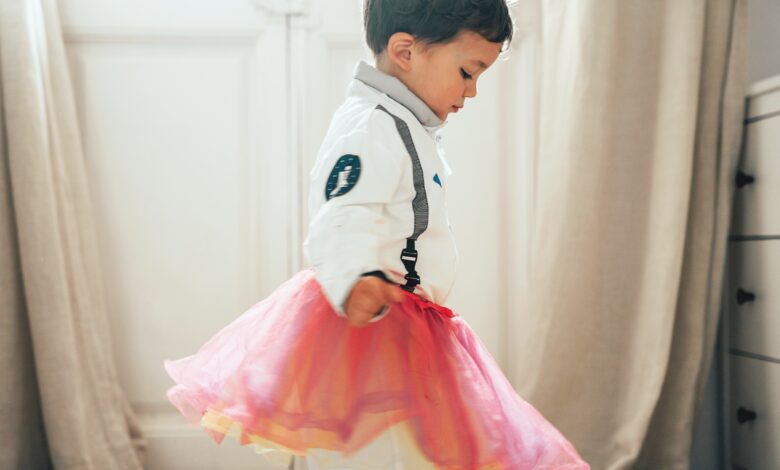How to Support LGBTQ Children

[ad_1]
This article originally published on The Child Mind Institute
“I was worried about my parents not accepting me for who I am,” recalls Katie Green, who identifies as queer and came out to her family in her early twenties. “I was worried they would stop loving me.”
Green’s worries are echoed by many LGBTQ teens and young adults facing the prospect of coming out to parents whose reaction they are less than sure about. Even when parents are likely to be understanding, coming out can be a source of intense stress and anxiety.
If you’re the parent of a child who you think might be LGBTQ, but who hasn’t come out to you, you in turn might worry about what your role should be. What effect will your response have on your child’s mental health and well-being? What does your child need to hear?
“The most important thing is just being supportive,” says Paul Mitrani, MD, a child and adolescent psychiatrist at the Child Mind Institute. “When people feel loved and supported, they are more capable. They have greater resilience.”
“The best possible scenario in my opinion,” says Green, “is nothing changes — you’re still the same person, people just know more about you now, being LGBTQ is just one aspect of your life. Being reaffirmed in knowing you are loved for who you are is powerful.”
How to be supportive
Parents may have mixed feelings about finding that they have an LGBTQ child. This could be because they’re worried about how the child will fare in their community — will they be bullied in school or discriminated against in the workplace? — or because they have religious reservations. But whatever your feelings are, Dr. Mitrani urges, you still want to have the same approach: “You want to err on the side of being empathetic and being supportive.”
If a parent is very distressed about a child being LGBTQ, Dr. Mitrani urges them not to express those feelings to the child. Talking about it with a support group like PFLAG, someone in your church or congregation, or a therapist could be helpful for you and your child, too. You may have strong feelings, he adds, “but as a parent you always have to come back to see what’s best for your child.”
Having a parent that a child feels they can be honest with is important both to your child’s well-being and to your relationship, in the short- and long-term.
With children, especially adolescents, it’s crucial to keep communication open, Dr. Mitrani notes. “You want the message to be, ‘I’m glad you told me,’ and ‘Help me understand what’s going on,’ as opposed to immediately shutting the communication down.”
Open communication, in which parents listen without judgment, is a form of validation for the child, adds Lauren Latella, PhD, a clinical psychologist at the Child Mind Institute. “If parents either minimize the importance of the child coming out, or jump right into problem solving,” she says, “it can leave the child feeling undermined.”
Above all, make sure your child knows that you love them and are there for them no matter what. Dr. Mitrani suggests language like: “I’m really glad that we can discuss this because we want to make sure that you’re safe and that you’re supported. And whatever decisions you need to make we want to be the best ones for you.”
Keeping kids safe
As a parent you may be worried about how your child will be treated, at school and in settings where LGBTQ people are not welcome, and how they will handle hostility, if they encounter it. Dr. Mitrani suggests opening the conversation by exploring whether the child is concerned about not being accepted or being targeted for bullying, as opposed to saying, “This is going to be harder for you.”
The child might say, “No, everybody already knows and they’re supportive and the teachers are great.” Or they might alert you to a lack of support.
“If they’re in school, you need to understand what your school’s policies are,” says Dr. Mitrani. “If you get the sense that they won’t be supportive of your child, you either need to make a stand and advocate for those supports or consider changing their school to someplace where they will be safe and protected.”
When parents are worried about whether an LGBTQ child will be safe, Green notes the importance of support from parents in making children able to speak up. “Providing a supportive home life is critical. Your child feeling comfortable enough to share their safety concerns can make a difference.”
Green, who is the Digital Giving Manager at the Trevor Project, which provides crisis intervention and suicide prevention services for LGBTQ youth, adds that by talking openly about these issues, parents can help create a safer world for LGBTQ kids. “Being an ambassador for your child and for LGBTQ rights has an impact in the community. By being an advocate for your child and speaking with pride about your child’s identity, you’re working to make the world a better place for other young people.”
Telling other family members
Coming out can be a huge relief for teens or young adults who are LGBTQ, but the process is often rocky and sometimes painful. Your child may have opened up to friends or co-workers who didn’t respond well, or may be worried about how family members or other important people will react. Once your child seems ready to talk, check in with them about how they’re feeling, and how you can be supportive. Start by asking questions and listening to their answers calmly. Your goal is to let them know that you are hearing what they need to share with you.
Something parents often struggle with is the knowledge that they are, if not the last to know, certainly not the first. Try not to be surprised, or offended, if you find that your child has been more candid with their friends, and even some other adults. The Trevor Project’s LGBTQ Youth Mental Health Study found that most respondents disclose their sexual orientation and gender identity to friends first, then trusted adults, who may not always be their parents. Less than half were out to an adult at school. Green notes several reasons why they might be reluctant to tell parents:
- Unlike friends, parents have control over aspects of young people’s lives, including housing and financial support, which can be withdrawn.
- Parent’s expectations of who they should/could be growing up can create a lot of pressure for children. Coming out can put the child at risk of feeling they have disappointed their parents.
- Peers can have a like-minded approach to sexual orientation and gender identity, making them more likely to be accepting and supportive of the LGBTQ community.
When it comes to telling others in the family that a child is LGBTQ, it’s recommended that you let the child take the lead. “Telling the rest of the family is up to the person who is coming out,” says Green. “They’ll either have a solid understanding of how they want to proceed or they may not know — just have an open conversation with them and be honest, clear and supportive to help them plan how to move forward. Being respectful of their wishes is a very important element to this conversation.”
Another concern parents express is the worry that their child’s announcement of their sexual orientation may be influenced by trends in their peer group.
“Adolescence, when most kids tend to come out, is a time of identity formation,” says Dr. Mitrani. “Kids experiment with different things, whether it’s hairstyles or clothing or music, and they’re trying to find themselves.” Sexual orientation and gender identity may be one of those things. But while that’s true,” he adds, “my experience is that it’s not in the majority of the cases.”
Written by Caroline Miller
[ad_2]
Source link






